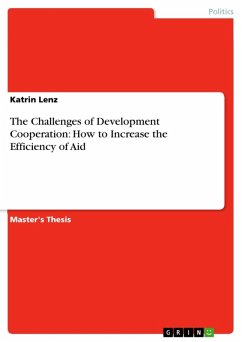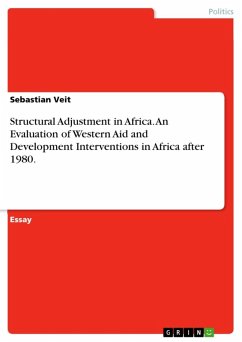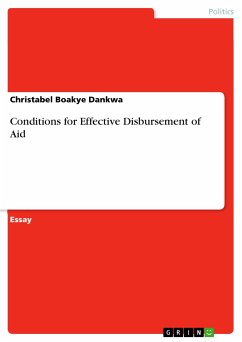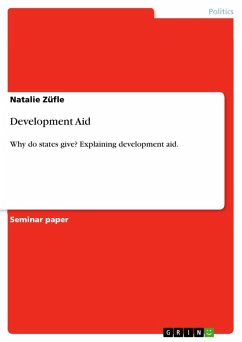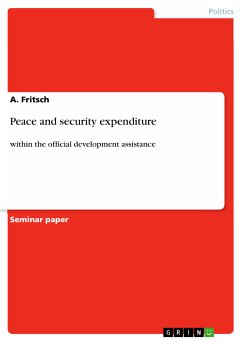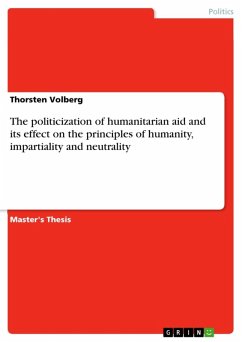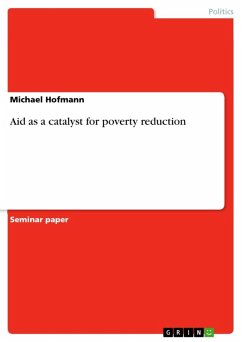Master's Thesis from the year 2004 in the subject Politics - Topic: Development Politics, grade: sehr gut, Schiller International University , language: English, abstract: Development cooperation can be broadly defined as an effort to assist nation states, and their citizens and institutions to develop and thereby grow out of poverty. It usually consists of a transfer of money and/or knowledge from developed to developing countries to support development efforts in a wide range of areas, such as infrastructure, governance, market reform, poverty reduction, education, health care, etc. It is a relatively young field in international relations, evolving after World War II with the Marshall Plan. The Marshall Plan was designed to help Western Europe recover and to establish democratic states based on market economy and to meet the Soviet communist threat. The success of the Marshall Plan led the United States to conclude that this concept could also be applied to other parts of the world, mainly to protect them from any communist tendencies, but also to reduce poverty. National security interests, however, were the leading motive for development cooperation during the Cold War. The American foreign aid policy continues to focus on national security interests up to today. Other donor countries, for example France and Great Britain, were supporting their former colonies, aiming at securing their commercial interests and maintaining access to natural resources. Only the Scandinavian countries (Denmark, Sweden and Norway) and the Netherlands placed humanitarian motives above security and commercial interests and aimed at eliminating poverty from the very beginning of their development cooperation. To achieve their diverse and varied goals, donor countries employed various strategies and repeatedly changed them to respond to their non-efficiency. Development strategies were also influenced by development theorists and varied from simply supplying developing countries with what they were missing (mainly capital) with the expectation that the benefits would trickle down to the poor, to structural adjustment programs demanding strict economical and fiscal policies. After the end of the Cold War, the demand for developing countries to display democratic principles was then added as a requirement for receiving aid. Yet none of these strategies has been able to close the global poverty gap.
Dieser Download kann aus rechtlichen Gründen nur mit Rechnungsadresse in A, B, BG, CY, CZ, D, DK, EW, E, FIN, F, GR, HR, H, IRL, I, LT, L, LR, M, NL, PL, P, R, S, SLO, SK ausgeliefert werden.

